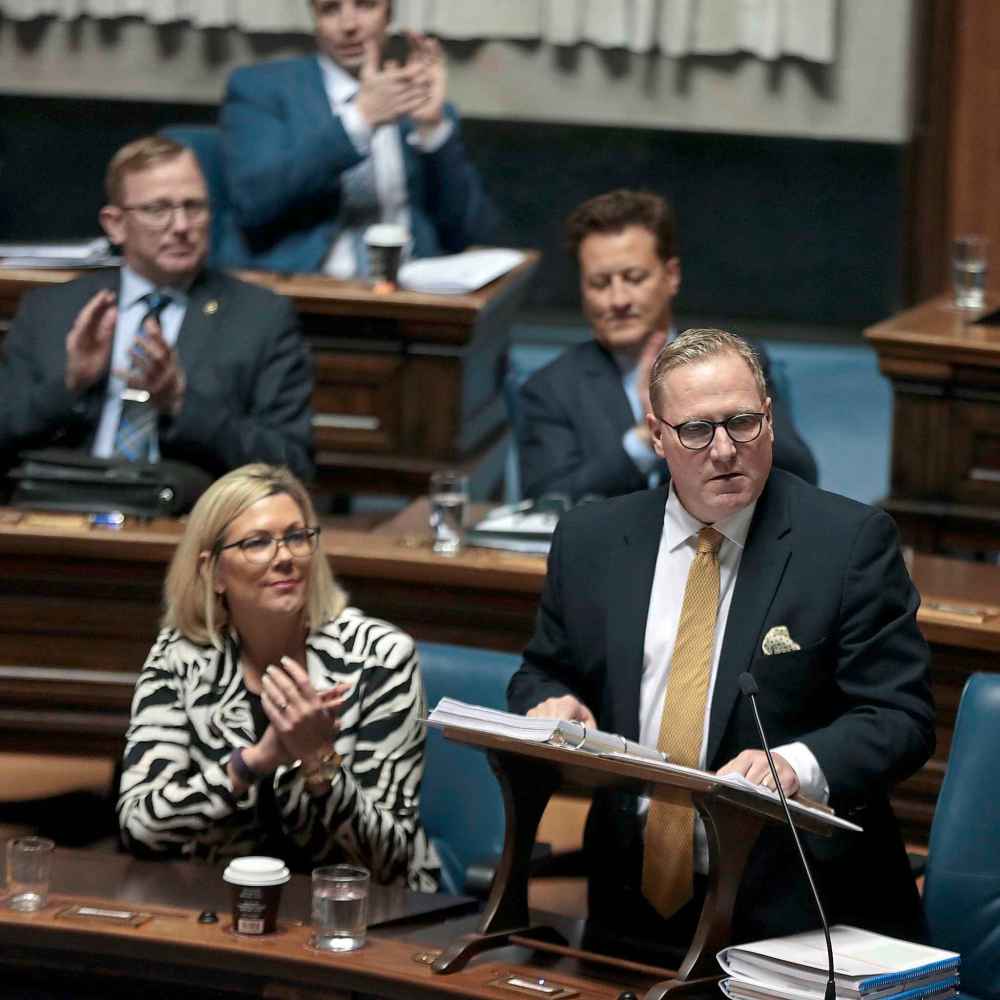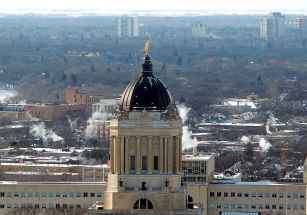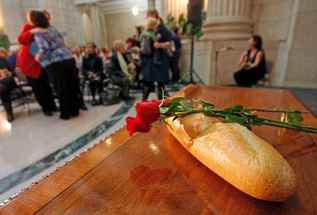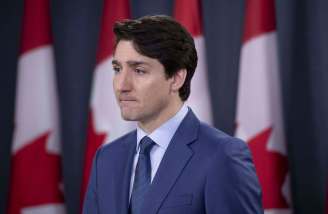PST cut, deficit-fighting highlight Tory budget
Read this article for free:
or
Already have an account? Log in here »
To continue reading, please subscribe:
Monthly Digital Subscription
$0 for the first 4 weeks*
- Enjoy unlimited reading on winnipegfreepress.com
- Read the E-Edition, our digital replica newspaper
- Access News Break, our award-winning app
- Play interactive puzzles
*No charge for 4 weeks then price increases to the regular rate of $19.00 plus GST every four weeks. Offer available to new and qualified returning subscribers only. Cancel any time.
Monthly Digital Subscription
$4.75/week*
- Enjoy unlimited reading on winnipegfreepress.com
- Read the E-Edition, our digital replica newspaper
- Access News Break, our award-winning app
- Play interactive puzzles
*Billed as $19 plus GST every four weeks. Cancel any time.
To continue reading, please subscribe:
Add Free Press access to your Brandon Sun subscription for only an additional
$1 for the first 4 weeks*
*Your next subscription payment will increase by $1.00 and you will be charged $16.99 plus GST for four weeks. After four weeks, your payment will increase to $23.99 plus GST every four weeks.
Read unlimited articles for free today:
or
Already have an account? Log in here »
Hey there, time traveller!
This article was published 07/03/2019 (2474 days ago), so information in it may no longer be current.
The Pallister government is cutting taxes while trimming the provincial deficit, thanks to generous federal transfer payments and continued spending restraint.
Finance Minister Scott Fielding announced in the provincial budget Thursday that the government will lower the provincial sales tax by a percentage point — to seven per cent — on July 1.

“Manitobans deserve a break,” Fielding said as he delivered his first budget since becoming the minister in August.
While the Progressive Conservatives had long promised to reduce the tax before the end of their first term in office, most observers had expected them to announce the move next year.
Business leaders and the Canadian Taxpayers Federation were delighted by the early tax cut, which reversed an unpopular move by the former NDP government six years ago that led to its downfall.
Opposition politicians and unions, however, expressed concern with a budget that continued to focus on deficit-fighting at the expense of services and economic growth.
The decision to cut the PST now — a year before the government needed to do so to fulfil its 2016 election campaign promise — fuelled speculation that the Progressive Conservatives might call an election before the fall of 2020.
While Premier Brian Pallister had sparked initial election speculation by refusing to rule out an early vote, he refused to comment about the timing of an election on Thursday.
“This is a good news budget for Manitobans, and I think it’s a tremendous accomplishment, frankly, for our team in government and a tremendous benefit for the people of this province,” the premier said.

The government said the PST cut is expected to save a family of four an average of $500 per year. The move will cost the government $237 million in lost revenue this year (over nine months) and $325 million over a full fiscal year.
Despite the self-inflicted revenue hit, Fielding is projecting that the government will reduce the deficit to $360 million in 2019-20 from a forecast shortfall of $470 million for the current budget year, which ends March 31.
Loren Remillard, president of the Winnipeg Chamber of Commerce, said he was pleasantly surprised that the government will cut the PST this year instead of waiting until the last year of its mandate.
He said the move is good for consumers and for businesses, who will see their costs go down. He was also pleased that the government appears set to balance the province’s books well ahead of schedule (by the end of a second term in office).
PST rollback reaction
The Progressive Conservative government’s blockbuster budget announcement Thursday drew mixed reaction.
The rollback of the provincial sales tax to seven per cent from eight per cent, as of July 1, was feted by business advocates, while those more concerned with social welfare were less enthused.
During the 2016 Manitoba election campaign, the Tories’ central pledge was to cut the PST by one percentage point by the end of their first term in office.
The Progressive Conservative government’s blockbuster budget announcement Thursday drew mixed reaction.
The rollback of the provincial sales tax to seven per cent from eight per cent, as of July 1, was feted by business advocates, while those more concerned with social welfare were less enthused.
During the 2016 Manitoba election campaign, the Tories’ central pledge was to cut the PST by one percentage point by the end of their first term in office.
They managed to do so more than a year before Manitobans are scheduled to go to the polls in October 2020 — which left political observers speculating about the possibility of an early election being called. (Premier Brian Pallister ignored such questions Thursday.)
Todd MacKay of the Canadian Taxpayers Federation said he was pleasantly surprised to see the PST cut in this budget, since the PCs could have waited until 2020 to fulfil their campaign pledge. He called it a “victory for taxpayers.”

Todd MacKay
“My crystal ball is not working at all. I did not see this one coming, and certainly I’d never make a bet on when an election happens,” he said. “I don’t think it’s going to go (early). I think the more accountable thing to do would be to wait for the fixed election date (October 2020). That said, keeping that cornerstone promise, it certainly clears the way for an election.”
Also Thursday, the government introduced its Budget Implementation and Tax Statutes Amendment Act; an unusual move since the legislation is usually tabled sometime later in the spring or fall.
When the PST changes this summer, Manitoba will have the third-lowest rate in the country, behind Alberta (no tax) and Saskatchewan (six per cent), and tied with British Columbia.
The province said, in 2019, it expects a single resident will save $86 in PST and a family of four $239.
Big-ticket items, such as appliances, furniture and vehicles, will become more affordable — though that may not make life any easier for low-income Manitobans who weren’t considering such purchases to begin with, said Michael Barkman, chairman of Make Poverty History Manitoba.
“I think potentially it could have a marginal impact for some low-income households. But it even says in the budget that the biggest impact will be on households that have more discretionary income,” he said.
“So many low-income people spend more than 50 per cent of their income on rent, and then food and children’s clothing and diapers — and that’s all PST-exempt. So I think the impact (the PST cut) has on ending poverty, or at least poverty-reduction measures, is underwhelming.”

Molly McCracken
Molly McCracken, director of the Canadian Centre for Policy Alternatives, was also disappointed by the PST alteration.
“We just heard from the UN IPCC (Intergovernmental Panel on Climate Change) report that there’s a climate emergency and we need to take substantial action,” she said. “And so the revenue that otherwise could have been used from the cut of the PST could have gone towards preparing for climate change and creating more green infrastructure.”
Jonathan Alward of the Canadian Federation of Independent Business was celebrating the tax cut Thursday. He said small businesses need it, as Ottawa implements a carbon tax April 1 and Manitoba Hydro rates rise.
“We’re expecting that small businesses are going to be able to pay their employees more. They’re going to be able to invest in technology to set them up to grow and succeed in the future.”
jessica.botelho@freepress.mb.ca
Twitter: @_jessbu
“It definitely instills confidence in the business community that the government is sticking to its plan, and for business we can see the light at the end of the tunnel,” he said.
However, organized labour was disappointed in the government’s financial blueprint.
“We have warnings of an economic slowdown and (the) government, yet again, has no plan for (creating) jobs,” said Kevin Rebeck, president of the Manitoba Federation of Labour.
“This government only sees the bottom line,” he said. “There’s no plan to grow the economy. It’s about cuts.”
Fielding’s plan for delivering a sizable tax cut while reducing the deficit relies on a $300-million boost in federal transfer payments in the coming year to $4.26 billion.
The minister is also counting on the provincial economy to grow by 1.7 per cent this year and 1.5 per cent next year. While those growth rates are modest, they are still more optimistic than some recent forecasts.
The government has set aside close to $32 million in extra funding for floods and forest fires this year, and boosted another contingency fund by more than $30 million. But those funds could disappear quickly if a large Red River flood this spring causes more damage than anticipated.
Fielding gave himself a bit more manoeuverability by transferring an additional $50 million into the province’s rainy day fund, which is projected to reach $265 million in the coming year — unless a disastrous flood wipes it out.
The Progressive Conservatives’ fourth budget in less than three years contains no new taxes and no increase to so-called “sin taxes,” such as those on tobacco and liquor.
Total summary budget spending is rising to $17.48 billion compared with the government’s latest forecast of $17.16 billion for the current year.
Most government departments are receiving only nominal increases or slight decreases in their budgets this coming year compared with the past 12 months.
Total health spending is rising $118 million — to $6.65 billion — compared to what is actually being spent this year. However, the government is budgeting to spend $120 million less on health than it budgeted a year earlier. Earlier this week, the government said it would under-spend its 2018-19 health budget by $240 million.
The budget provides a slight increase in operating grants to the City of Winnipeg. It earmarks up to $113 million in capital grants, compared with $84 million last year.
The government did not ballpark how much tax revenue it would receive from the sale of cannabis. Fielding said the government will have a better idea when wholesaler Manitoba Liquor & Lotteries posts its annual report in September.
On health, the province continues to lower ambulance fees, reducing them to a maximum of $250 in the coming year.
The budget calls for the hiring of 35 additional primary care paramedics and the purchase of 65 replacement ambulances.
The government has also reserved $20 million to allow it to sign upcoming agreements with the federal government on addictions treatment and mental health.
In terms of fighting crime, the budget will fund an additional 27 Mounties and two additional RCMP administrative staff.
An extra $2.3 million will be set aside to combat drug-related crime, and an additional $325,000 will be devoted to supporting victims of crime, including those hurt by domestic violence.
The government also intends to install new body scanning equipment in correctional facilities.
In terms of tax credits, the government will boost funding for the Manitoba Film and Video Production Tax Credit to $31.5 million from $16 million.
The province is reducing red tape for the Primary Caregiver Tax Credit by allowing caregivers to claim the credit when they file their income taxes by April 30 each year.
It also plans to extend the Small Business Venture Capital Tax Credit for three years. It will also extend a book publishing tax credit for five years and extend the cultural industries printing tax credit for another year.
larry.kusch@freepress.mb.ca

Our newsroom depends on a growing audience of readers to power our journalism. If you are not a paid reader, please consider becoming a subscriber.
Our newsroom depends on its audience of readers to power our journalism. Thank you for your support.
History
Updated on Thursday, March 7, 2019 7:38 PM CST: Adds video
















